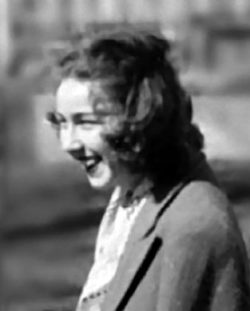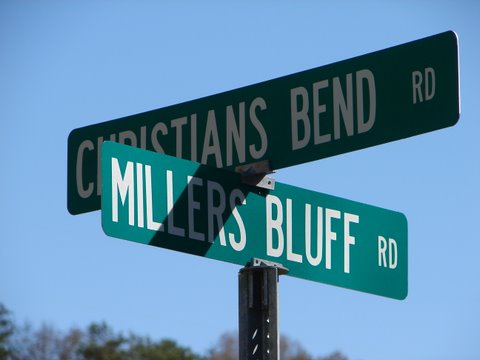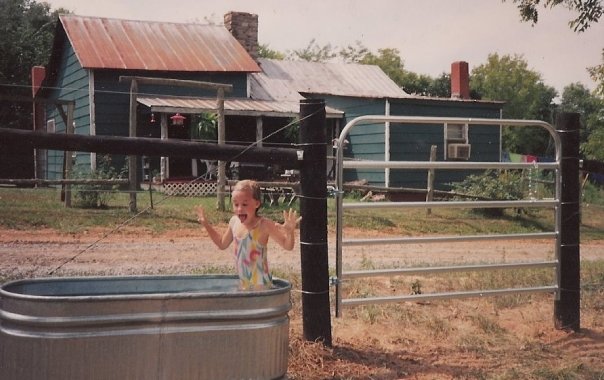
River Jordan’s fourth novel – The Miracle of Mercy Land – garnered a starred review in Publishers Weekly. That will come as no surprise to the many readers who have long felt that River Jordan is a magical storyteller.
Mercy Land is a journalist who works for the Bay City newspaper, alongside Doc, the editor-in-chief. Like a lot of community newspapers, the two of them make up the news staff. The news takes an unprecedented twist, however, when Doc discovers a mystical book, one capable of revealing the secrets of the townspeople. Doc and Mercy find themselves confronted with the ethical question every journalist faces: How much information is too much information?
When a seemingly unknown and a very attractive John Quincy arrives in town, reportedly to take over Doc’s job, Mercy finds herself in a struggle she never reckoned on. Join author Karen Spears Zacharias as she visits with River Jordan:
Karen: The Miracle of Mercy Land is a haunting tale. When did the idea for this book first present itself to you?
River: I had this image of a man standing in an empty street with these pages from a book falling about his feet. That stayed with me for about a year. Then I heard the voice of Mercy Land, you know the way that writers do, and she began telling me her story. That was where the first line came from. As I continued writing I discovered that the man in the street was an integral part of the story.
Karen: Why did you set this story in this particular period?
River: It was a very special time in the country. Just pre-WWII. There were areas of our society, our cultural experience if you will, that were not at their best. But in some other ways, there was a different sensibility. It was very much a time when people weren’t plugged into their phones, devices, televisions but still gathering around a table, talking about the daily news, and strolling down Main Street on a weekend afternoon. I needed that pace for the story to take precedence, to have its full focus and impact. It also made me aware of just how many distractions surround us now in our everyday attempts to just be alive.
Karen: Mercy Land is a journalist. Your descriptions about her role as a small-town reporter are spot-on. The result of research or of personal ambition and/or experience?
River: All of the above. I don’t know that ambition would be the right word but you know when you are a young person trying to find your place in the world, eventually you find a piece of the puzzle that seems to fit better than others. In high-school I studied journalism, both print and broadcast, and received a small scholarship to a community college. I seemed to be on that track and always idolized the female reporters of the day. The Lois Lanes if you will during a time when men really did take the drivers seat in the news business. My life took a different turn but I can still see where being some kind of front lines journalist would have greatly appealed to me. And also realizing that when you are reporting the news from the home front, it’s important even if home is a backwater small town.
Karen: Place is as much of a character in this book as the people. Why is that?
River: Mercy Land begins her journey right there by the banks of Bittersweet Creek, in a lightning storm no less. And then she moves to this ideal, charming little city along the bay full of humidity, manners, and salty air. Those two factors shape her life significantly. She came from one, and becomes the other without sacrificing the first. It makes up a crucial part of her who she is and also plays an equally significant role in which some of the other characters are or are not. But I don’t want to give anything away.
Karen: How has place shaped you as a writer?
River: I never realized how much I included place as character until my first novel, The Gin Girl, was published and I began to receive notes and endorsements from authors who spoke of breaking out in a sweat while reading this story set in the islands off the coast of Florida. Then I began to see that my upbringing, those hot southern nights full of storytelling and heat lightning, totally infused me and blended together. I wouldn’t know how to separate place from a story if I tried. It lends so much understanding to me of who the characters are to know the dirt they’re standing in.
Karen: Your work has an ethereal quality to it. Do you purposely nurture that as a writer or is that an outward manifestation of something deeper in River?
River: I never felt particularly ethereal but as I’ve gotten older and taken a look back at my childhood, I see I certainly was a little different. My mother will sit sometimes and tell me that I was, “I don’t know,” she’ll say, “It’s like your feet didn’t quiet touch the ground. Like you were just somewhere I couldn’t reach.” I think we call those children daydreamers. Or at least we used to. I hope there are still children staring out windows, daydreaming and staying in touch with the deeper parts of their souls. Particularly if they are artists of some type because they’re going to need those deep waters in years to come.
Karen: The relationship between Mercy Land and Doc Philips, her mentor, is such a moving friendship. Who have been the mentors in your career?
River: I have to give a very, early nod to my mother who read to me every night at bedtime and encouraged me to read all of my life, who didn’t make me stop reading to be ‘busy’ or work on ‘chores’. Although I had those too. I was really given free reign to read and as I became older, trusted to choose my own reading material. Then my playwriting teacher, Dr. Yolanda Reed of the Loblolly Theatre Group became my professional mentor. For years upon years. I consider her a dear friend now but I still call her on occasion to ask her advice or direction then I listen very closely to every word she says because she is always right.
Karen: Tell us about the mystical book in this story.
River: It’s one of those things that just showed up. I’m listening to his rather southern story about this backwoods woman moving to small city, getting a job, having hopes of making it in the news business and then this book shows up and once again I’m not writing a straight forward southern story the way I set out to. All those mystical elements come crashing back in. The most amazing thing is see, I think the book is highly plausible, not this magical mystery. Just otherworldly. Words that live and move and breathe? Certainly. Words that can change languages depending on the reader? Absolutely. A book that can show paths taken, or ones we turned away from? Not a problem. I mean, we all have those books inside of us through the stories we hold, capture, keep of ourselves and our families.
Occasionally, it’s only human to wish you would have done one thing differently, correct a mistake, extend a kindness you caught in retrospect, but would that have really made a difference? Or would it have made a thousand other unseen changes? No one really knows but we do think of it, and we do wonder. But the most important thing now is for us to realize perhaps that our lives are linked to one another, that what one of us does, matters to the other whether we realize that or not. I must say the outcome of the book, the things the characters discover about themselves because of the book, beautifully illustrate that human connection.
Karen: There is that moment when John Quincy realizes he doesn’t want to go through the rest of his life burden with the “ugliness of the past.” Such a powerful statement. Why did you choose regret as the demon to wrangle?
River: He’s a man with a dark past, lost opportunities among other things. Like most of my stories, I don’t think I chose regret but that it chose me. Regret just walked into the story when Doc discovered that book. Apparently, it was something he had been carrying around and hiding for a long time. He just thinks at that moment he has found a way to heal his regrets.
Karen: This is your fourth novel, right? Each story is a different community of people that I imagine you come to love as much as your readers. Do you go through a period of mourning for them?
River: I don’t exactly mourn for them because I don’t ever see them as gone. The stories will live on forever as long as people are reading them or sharing even one scribble from the story line. To me I have a special place so that when I think of the island of Toliquilah, or the town of Shibboleth, the creeks of Echo, Florida, or the streets of Bay City they are fully alive and flourishing. And just because I had to move on to other work, life doesn’t in those places. It’s one of the reasons I love to visit with book clubs regardless of which book they’ve read because if they are reading a book I had published two years ago, it feels like I just had a nice long visit with Aunt Kate, Trice, and that Crazy old Magnus if I pull up a chair and talk about The Messenger of Magnolia Street. They are all that way to me. Perpetually alive.
Karen: What do you love most about being a writer? And your least favorite part?
River: What I love most is unzipping from one world and stepping into another. That’s what it feels like to me. Stories play out in my minds eye almost like watching a move, and the place, the characters, and the stories are as if I am discovering and living in new world. That’s a lot of traveling without leaving the desk and I don’t mind. My least favorite part might be working on line edits, the final proofing stage, which is critical but tedious.
Karen: You are at work on your next project which surprisingly is non-fiction. What can you tell us about that project?
River: Well, I can certainly tell you that it took me completely by surprise. I had this odd idea pop into my mind, just like hearing that first line from Mercy Land for her story – totally out of the blue. The idea was to pray for a stranger I passed ever day on the street or on my way somewhere, a store, a road, library and so forth. Not to pray for them in public but just to say a quiet prayer of blessing for that person at some point in my day.
After some desire on my part to scrap the whole idea before I started, I ended up embracing the concept and then actually doing it. In the process, I walked up to a woman in a bus-stop and told her about my resolution and that she was my stranger. Her response spurred me on to tell others the same thing throughout the year. The stories that evolved from this experience will be published by Penguin/Berkley in hardback in April of 2011, Praying for Strangers, An Adventure of the Human Spirit. It has been an amazing experience. I tried to quit but it’s become much something I simply do now in a very non-religious kind of way. Readers can find out more about it at my website as well at www.riverjordan.us or they can also go directly to Http://www.prayingforstrangers.com and it will lead them to the page about the upcoming book, the resolution, and how they can even share their story if they so choose.
I’ve heard from people all over who have started doing this to one degree or another and they bring back some amazing experiences. People are making connections with one another on some level that wouldn’t have taken place before. I think that’s wonderful. If this thing we do called writing can somehow illuminate a tiny piece of the mystery, make it tangible enough to touch and possess and pass along, then it’s been a really great week for me. Which gives me a great excuse to take a breather, pick up a book, and go hide somewhere to get lost in a good story.
P.S. Dear IRS: This book appeared as if by magic on the counter in my office one day. I think maybe the ravens dropped it there. Good think the Demon Dog didn’t get to it first.











